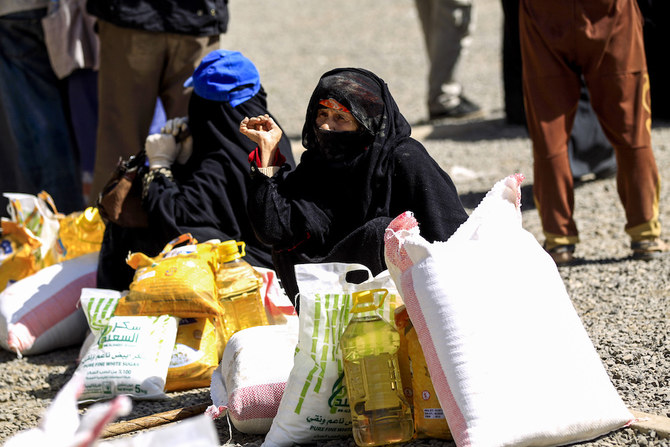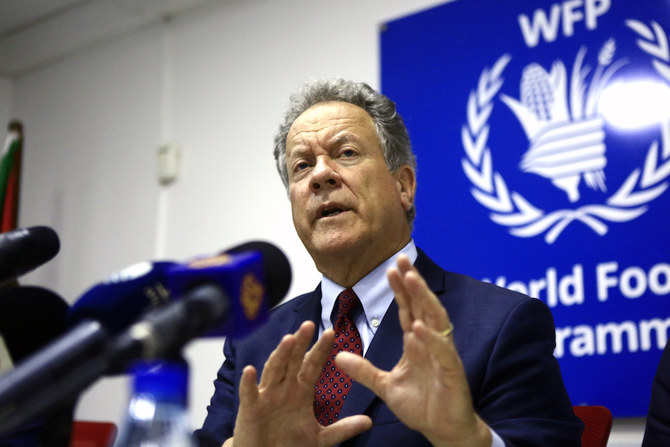UNITED NATIONS: The head of the UN food agency accused Yemen's Houthi rebels on Monday of diverting food from the country's hungriest people and threatened to suspend food aid later this week unless they immediately implement registration and monitoring agreements.
David Beasley, executive director of the World Food Program, told the UN Security Council that the agency in late 2018 uncovered "serious evidence that food was being diverted and going to the wrong people" in the capital of Sanaa and other Houthi-controlled areas.
As examples, he said up to 60 percent of beneficiaries at seven centers in Sanaa "confirmed they had not received any assistance" and 33 percent of respondents in the rebels' northern stronghold of Saada received no food in April.
He said WFP has insisted on — and the Houthis finally agreed to — registration and biometric identification of beneficiaries and monitoring in December and January, but the agency has faced roadblocks ever since in implementing the agreements.
Beasley said he wrote to Houthi authorities again asking for action, not words.
“Let me be crystal clear; children are dying right now because of this”, he said
"If we do not receive these assurances, then we will begin a phased suspension of food assistance, most likely towards the end of this week."
Beasley told the council Monday that the diversions were mainly in Houthi areas. When there are reports in government-controlled areas, he said, "we receive cooperation to address issues."
The conflict in Yemen began with the 2014 takeover of Sanaa by the Iranian-backed Houthis, who toppled the government of Abed Rabbo Mansour Hadi. An Arab coalition allied with Yemen's internationally recognized government has been fighting the Houthis since 2015.
UN special envoy for Yemen Martin Griffiths, Lowcock and many council ambassadors expressed concern at the increase in attacks on Saudi Arabia, especially the recent drone attacks on the airport in Abha in the country's southwest that the kingdom said injured 26 people.
Griffiths said he was concerned about the attack on Abha airport in south-west Saudi Arabia last week, and civilian infrastructure in southern Saudi Arabia in general.
He also warned that escalating tensions in the region with Iran were hampering the political process in Yemen.
"In the context of wider regional tensions the risks to the political process have never looked more stark," Griffiths said. "I call for steps to be taken to deescalate tensions for the benefit of the Yemeni people as well as for regional security."
An agreement signed in Stockholm in December that focused on a ceasefire in Hodeidah is under increasing strain as regional tensions grow. The US and Saudi Arabia, which is part of the Arab coalition fighting the Houthis in Yemen, have accused Iran of attacking two tankers ib the Gulf of Oman last week.
Griffiths said that while there has been progress in a deal to redeploy forces around Hodeidah, there has been little movement on other elements of Stockholm, including the city of Taez and an exchange of prisoners.
The Security Council expressed support for Griffiths and reiterated that there can only be a political solution to the Yemen conflict. A council statement condemned the June 12 attack on the airport in Abha and called for the perpetrators to be brought to justice.





























